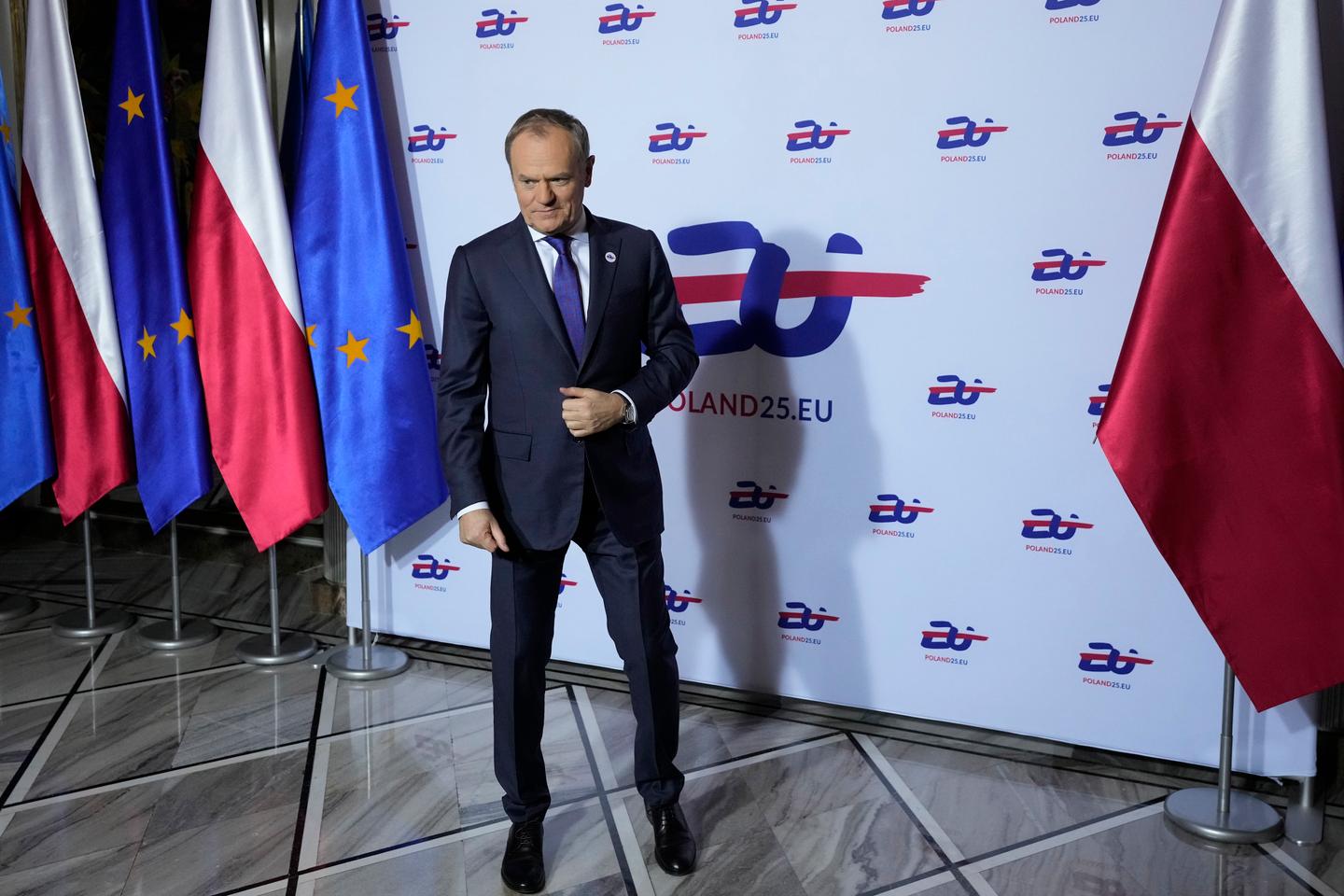


In an irony of history, Poland took over the rotating six-month presidency of the Council of the European Union (EU) on Wednesday, January 1, in a context both tragic and propitious. The Russian war that is devastating Ukraine, on the doorstep of a country so often trampled and torn apart by rival powers, has become a key issue for Europe. Warsaw had already perceived the threat long before the member states of Western Europe, who remained deaf to its warnings. Today, Poland plays a crucial role in the logistics of aid to Ukraine, and is working hard to fortify its eastern border, Europe's bulwark against the danger from the east.
In the rotating presidency, Poland takes over from Hungary, whose performance hasn't dazzled Brussels, with whom it is currently at loggerheads. This, in turn, accentuates the good European side of the team now in power in Warsaw. The prime minister, Donald Tusk, combines the advantages of having been president of the European Council from 2014 to 2019, and of belonging to the most important political current both in the European Parliament and within the College of Commissioners: the Christian Democrats of the European People's Party (EPP), from which the Commission president, Ursula von der Leyen, also hails.
Thirdly, Tusk has appointed as European commissioner his former right-hand man Piotr Serafin, for whom he negotiated the highly strategic budget portfolio. Politically astute and well-versed in EU affairs, Serafin will be able to bring Polish influence to bear in Brussels.
The period fits Poland like a glove, as it reaps the rewards of its economic dynamism and invests record sums in its defense budget, an effort that other European countries will be called upon to make with Donald Trump's arrival in power in Washington. During his first term in office, Trump had already succeeded in getting the European NATO member states to increase their military spending. He has made no secret of his desire to repeat this demand in his second term, at a time when the return of war to the continent means that Europeans must contribute more to their own security.
Tusk, however, has other challenges to face with the EU: the enlargement process, in particular to Ukraine and Moldova, under more complex conditions than Poland enjoyed two decades ago; the ecological transition, in which the country, still dependent on coal and concerned about its rural electorate, is far from being in the vanguard; immigration, a subject on which Warsaw maintains a hard line, all the more so as Belarus is instrumentalizing a network of illegal migrants on the Polish border. In addition, there is the domestic political challenge of the Polish presidential election in May, which Tusk's coalition is determined to win in order to end its paralyzing cohabitation with the opposition National Conservative Party.
Another irony of history is that Poland is taking over the presidency at a time when France and Germany, the two main driving forces behind European integration and Warsaw's partners in the Weimar Triangle, are weakened by internal difficulties. Tusk is well placed to know that he cannot work effectively without them. But this unprecedented situation also offers Poland a historic opportunity to demonstrate its maturity.
